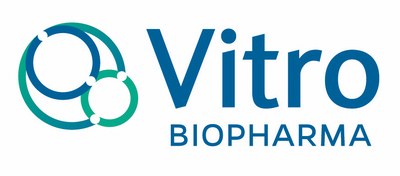Stem Cell Therapy: The Good, the Bad & the Ugly
Stem Cell Therapy: The Good, the Bad & the Ugly
Recently the FDA issued permanent injunctions against stem cell clinics using a type of stem cell product called Stromal Vascular Fraction (SVF). This product (“The Bad”) is derived from fat retrieved from a patient by liposuction. It is then digested by enzymes, washed and filtered to yield SVF. It is injected back into the patient receiving the liposuction for various therapies. SVF is not approved for
clinical use by any regulatory authority. It is a very impure source of stem cells and was responsible for blindness in 3 patients treated at one of the facilities recently sued by the Dept of Justice/FDA.
Bad Stem Cell Therapies
Vitro Biopharma has recently completed a white paper comparing SVF from both fat and placenta to expanded and purified MSCs. We found that SVF from either fat or placenta did not meet the international standard definition of a stem cell by measurement of specific proteins on the cell surface.
Thus, it is inaccurate to call SVF a stem cell product. Also, SVF was inferior to stem cells expanded from fat or placenta in terms of potency that reflects how well it will regenerate tissues. Unfortunately, this product is sold in many stem cell clinics in the US. The buyer should be aware of this product as ineffective and potentially harmful.
Ugly Stem Cell Therapies
These involve painful and potentially harmful procedures to remove tissues from your body: liposuction or bone marrow aspirate. While these are common procedures they are outdated and unnecessary when you use the latest technology produced as allogeneic stem cells.
Good Stem Cell Therapies
This is a type of stem cell is derived from another person and has just recently received approval for marketing by the European Medicines Agency (the European equivalent of the FDA.) for the treatment of a type of Crohn’s disease. There are three types of allogeneic stem cells being used in clinical applications: bone marrow derived, adipose (fat) derived or those from the umbilical cord. Within these three sources there is also variability. We and renowned Research Institutions have found that umbilical cord derived stem cells are the best.
Vitro Biopharma offers umbilical cord-derived stem cells for ongoing trial in the Grand Cayman Islands and in New Zealand for stem cell therapy of neurodegenerative diseases.
Stem Cell Therapy: The Good, the Bad & the Ugly Recap
In summary, it is very important to consider the stem cell product if you are planning stem cell therapy. SVF or similar products should be avoided. If a liposuction or bone marrow extraction is involved, realize that there can be complications and significant pain associated with these procedures.


